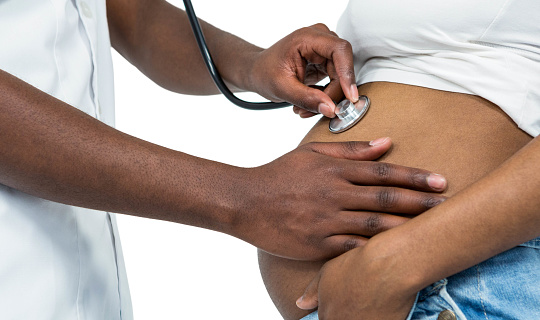CDC: Congenital syphilis cases more than double since 2013.
The number of babies born with syphilis has doubled since 2013 and is at a 20-year high, federal health officials said Tuesday.
More than 900 U.S. babies were born infected with syphilis in 2017, the Centers for Disease Control and Prevention reported.
It’s easy to cure a syphilis infection with antibiotics, but the sexually transmitted infection often does not cause immediate symptoms and people may not know they have it.
It can kill babies, however. The CDC says 40 percent of babies infected with syphilis are stillborn or die soon after they are born. Others are born prematurely.
Those who survive can develop deformed bones, severe anemia, meningitis, blindness and deafness.
“No parent should have to bear the death of a child when it would have been prevented with a simple test and safe treatment,” the CDC’s Dr. Jonathan Mermin said in a statement.
There’s an epidemic of sexually transmitted diseases across the U.S., with rates hitting record highs. Syphilis cases, in particular, nearly doubled in 2017, the CDC says.
A pregnant woman with syphilis has up to an 80 percent chance of passing it on to her baby, the CDC said.
“To protect every baby, we have to start by protecting every mother,” said Dr. Gail Bolan, director of CDC’s Division of STD Prevention.
“Early testing and prompt treatment to cure any infections are critical first steps, but too many women are falling through the cracks of the system,” Bolan said. “If we’re going to reverse the resurgence of congenital syphilis, that has to change.”
Women in the U.S. often do not have access to health care, a special risk when they are pregnant. Close to 9 percent of the population lacks any health insurance coverage, according to the latest Census Bureau figures.
Medicaid, the state-federal health insurance plan for people with low incomes, is supposed to cover pregnant women. So are policies provided by the Affordable Care Act, or Obamacare.
A CDC team found that in 2016, 15 percent of U.S. women received inadequate prenatal care. Only 77 percent of U.S. women got prenatal care in the first trimester.
Other CDC research shows that 1 in 3 women who gave birth to a baby with syphilis in 2016 had been tested at least once for syphilis while pregnant, but either became infected after the test or did not get treated in time to protect the baby.
“Women at high risk for syphilis or who live in high-prevalence areas should be tested not only at the first prenatal visit, but again early in the third trimester and at delivery,” the CDC said.
According to the new data, Louisiana had the highest rate of births affected by syphilis: 93 cases for every 100,000 births, the CDC team found. Mississippi had the lowest rate, with 2.6 cases per 100,000 births.
Cuts in funding to public health programs are to blame, at least in part, the Association of State and Territorial Health Officials said.
“With cuts to public health budgets, it’s no surprise we’re seeing a rise in rates,” Michael Fraser, CEO of the association, said in a statement.
“What we’re hearing from states is that the unfortunate increases in congenital syphilis cases has a lot to do with decreases in funding for the core work for STD prevention. These statistics remind us that we need to sustain funding for public health — we know what we need to do, we just need to have the resources to do it.”















